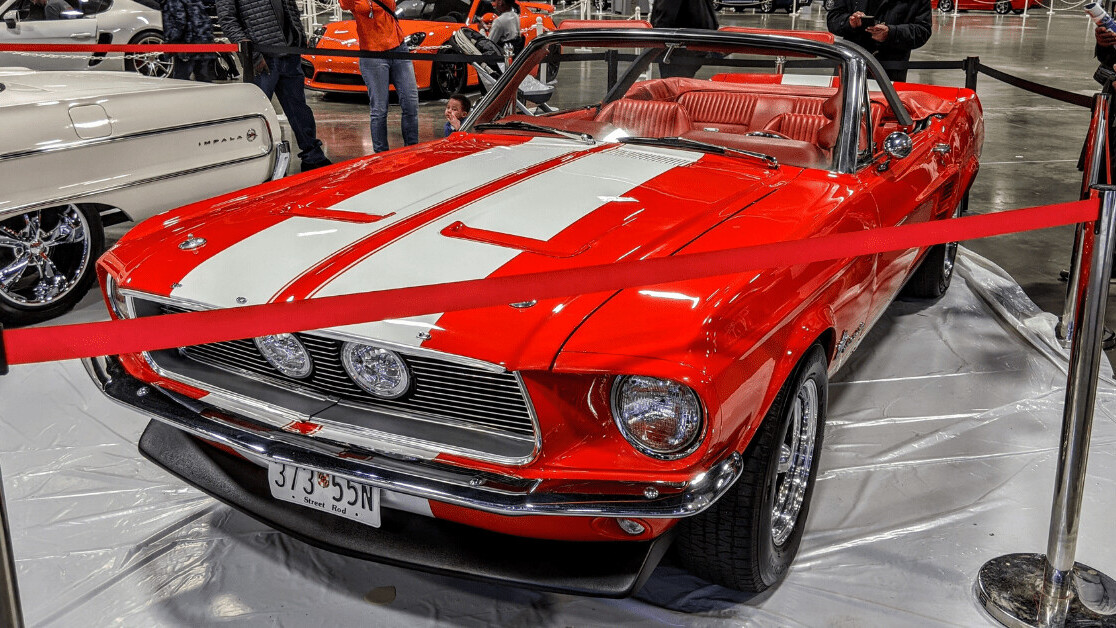This article was written by Ross Douglas, Founder & CEO, Autonomy, on The Urban Mobility Daily, the content site of the Urban Mobility Company, a Paris-based company which is moving the business of mobility forward through physical and virtual events and services. Join their community of 10K+ global mobility professionals by signing up for the Urban Mobility Weekly newsletter. Read the original article here and follow them on Linkedin and Twitter.
When I arrived in Paris five years ago to start Autonomy, I was invited to meet with the head of the Paris Motor Show on Avenue Montaigne – one of the most expensive pieces of real estate in the world. The newly appointed head had an office the size of the average Parisian apartment, and overlooking Gucci and Prada boutiques. The offices housed posters from various editions of the 120-year-old motor show’s illustrious history, which in its early years was based at the Grand Palais.
Motor shows have a great past and a very uncertain future. Five or six years ago, motor shows were at their apex and their model had not changed much in 100 years. Shows like the Paris Motor Show or the Frankfurt Motor show had all the big brands on board and received north of 1 million visitors. Not surprising given that in 2017, 95 million vehicle sales brought the world total to 1.3 billion – a milestone we will probably look back on as ‘peak car’.
Today, auto shows are dying. The majority of new car sales have switched to corporates from consumers, who are instead buying second hand and holding onto their cars longer. In the US, over the last 25 years, the average age of active cars has gone from around eight years to nearly twelve years. In Europe the trend is similar with the average age close to 11 years.
The 3 fallen auto show giants
Europe has hosted three large auto shows which were founded in the early part of the 20th century: Frankfurt, Paris and Geneva. The IAA in Frankfurt is run by the VDA (Association of the German Automotive Industry). The 2019 edition of the IAA was its last in Frankfurt. The show lost some big brands, like Toyota and Fiat Chrysler, and received half the visitor numbers. They also had to deal with climate change protests for the first time. One of the more militant groups, Sand in the Gearbox led by Tina Velo, used the show to confront the auto industry about their climate record, in front of the press.
The Geneva International Motor Show was scheduled for the 3rd of March, 2020, but was cancelled the day before opening due to Covid-19, costing organizers 11 Million CHF and the participating OEMS major losses on investment. Venue owners, Palexpo SA, bought the show, which will only re-appear in 2022.
The IAA used to alternate each year with the Paris Motor Show as part of a friendly agreement and The Paris Motor Show should have taken place this October. AMC, the holding company of The Paris Motor Show, recently sold a 50% stake to Hopscotch, a brand and activation agency based in Paris that organizes world-leading car and fashion launches as part of their offering. Hopscotch hoped to use their savoir-faire to revive the show to its former glory but the timing could not have been worse. Car companies had a difficult Frankfurt Motor Show and then the Geneva Show was cancelled last-minute. Car brands were not prepared to commit to an auto show under the circumstances and Hopscotch retrenched all their staff, making it highly unlikely that there will be a Paris Motor Show in the future.
From “motor” to “mobility”: a complicated leap
For now, the only certainty is of the Germans hosting a motor show. The IAA did not renew with Frankfurt and invited Berlin, Munich and Hanover to bid for the show. Munich won the bid over Berlin and Hanover due to a 15 million Euro investment by Bavaria and a smaller one by the city. The IAA plan to convert the auto show into a sustainable mobility show with the car at the centre of the mobility mix. They are hoping that this will pacify the likes of Tina Velo and her fellow anti-carbon activists. It’s going to be a challenge to keep everyone happy. The car companies will still present their SUVs to a Munich audience who love big cars. The mobility operators will present their solutions as alternatives to car ownership and European cities will stay away because they are dedicated to creating car free cities.
Caught between two disruptions
Motor shows, if they are to survive, will increasingly rely on government support. The food chain used to work something like this: car shows attracted the world’s press, who covered the launch of new models (often supported by car adverts), which consumers all around the world read in their favorite publication. Half those publications probably won’t exist in a few years from now and sales budgets will increasingly be spent on cheap regional events that give potential buyers a chance to test ride and decide.
Thanks to COVID-19 and the rise of digital, major trade shows are being disrupted. Motor shows face added pressure from anti-car cities and climate activists. Businesses will need to think about new ways to communicate their offering and generate leads .
SHIFT is brought to you by Polestar. It’s time to accelerate the shift to sustainable mobility. That is why Polestar combines electric driving with cutting-edge design and thrilling performance. Find out how.
Get the TNW newsletter
Get the most important tech news in your inbox each week.






